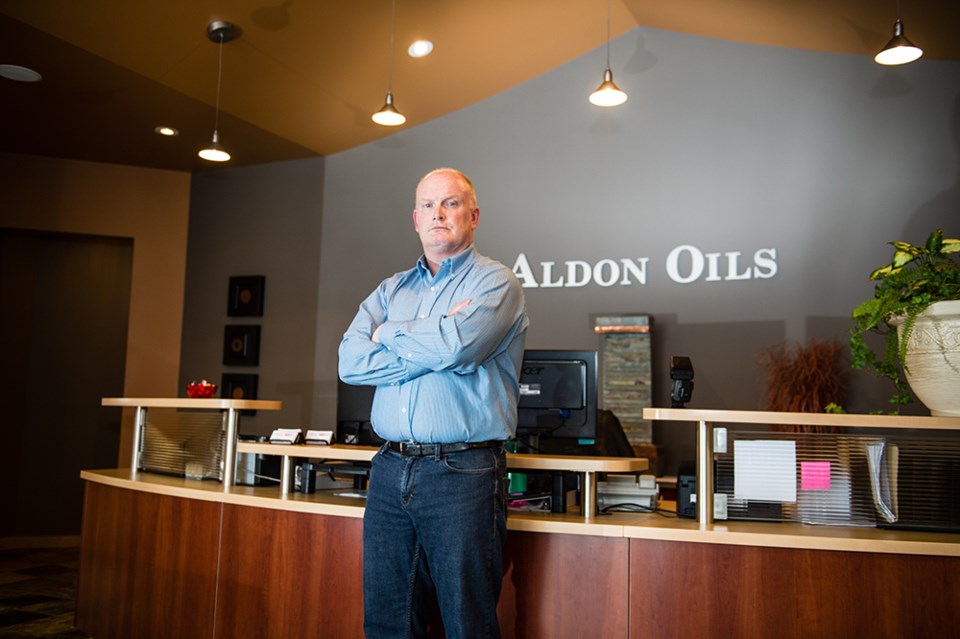In the last few months there hasn’t been a lot to cheer about in the oilpatch. When I was doing interviews for the March edition, oil was floating around US$27 a barrel – grim tidings, indeed. But despite all that, I profoundly enjoyed putting together the stories in the March and April editions.
For the first time in our eight years –°¿∂ ”∆µ published in this form, Pipeline News did a two-part focus, with that focus –°¿∂ ”∆µ on junior producers. I told the publisher we needed to do that because there was a lot of ‚Äúmeat on the bone‚Äù when it came to these stories. They couldn‚Äôt be done in short little pieces. There was too much to say.
Our mission statement refers to showing the general public the strength and character of the industry’s people. I found that strength and character, as well as strength of character, in spades.
Junior producers are the little guys. Some might only have a few wells. One man I met a few years back ran his entire business from the cab of his truck. Others have slowly percolated along for decades. A few grow rapidly, and are sold off. Fewer still graduate to what is referred to as “intermediate producers.”
Oilfield services companies often like to work with a number of junior producers, instead of –°¿∂ ”∆µ tied to one major client. That‚Äôs because if most of your business is with one client, a big oil company, and something goes wrong, you are in big trouble. It‚Äôs like sleeping with an elephant ‚Äì you better hope they don‚Äôt roll over.
Over the past two months I’ve had in-depth conversations with the heads of a number of these juniors. Two, Del Mondor of Aldon Oils (this month’s front page), and Brett Herman of Torc Oil and Gas (last month’s front page), have never done that sort of interview with anyone with regards to their respective companies. In the case of Herman, he’s built and sold numerous juniors, but this was his first interview about Torc, which has been his focus the last five years. Thus, this was a privilege indeed.
The people interviewed ranged from relatively young Warren Waldegger (well, my age, which I like to think is young), who heads up publicly-traded, Estevan-based Fire Sky Energy, to Gull Lake’s Jarrod Oils’ Eldon McIntyre, who bought his first well in 1975 for $3,000. And today, that well still produces 40 barrels of oil per day.
Brent Dunnigan, who graced our front page the last time we focused on junior producers in 2011, was awarded –°¿∂ ”∆µeast Oilman of the Year a few months later. In the past month, he and his family were recognized by the Estevan Chamber of Commerce as the 2016 Farm Family of the Year.
One thing stood out in all these conversations: nearly everyone I spoke to was looking at growing. While they may have scaled back on their expenses and drilling, their eyes were open for new properties. Several had, in recent months, bid on land or already closed deals.
These are the people taking risks and looking to the future while everyone else is wondering if the light at the end of the tunnel is the sun or a train about to run them over.
Another common thing I heard was the model for many junior producers of starting up, building and then quickly selling, then doing it all over again, is all but dead for now. If you intend on running a small oil company right now, you better be planning on doing it for the long haul, as liquidity events are not in the cards for the near future.
Most of these junior producers are in it for the long-term. They‚Äôve lived through downturns, and have done what it takes to avert disaster when things got really bad. Eldon McIntyre sold off two drilling rigs and everything he could when the bank came calling in the mid-1980s.Ã˝
In many ways, junior producers are the heart and soul of the Saskatchewan oilpatch. They are all showing optimism in these trying times. We should too.
Ã˝
Brian Zinchuk is editor of Pipeline News. He can be reached at [email protected].




